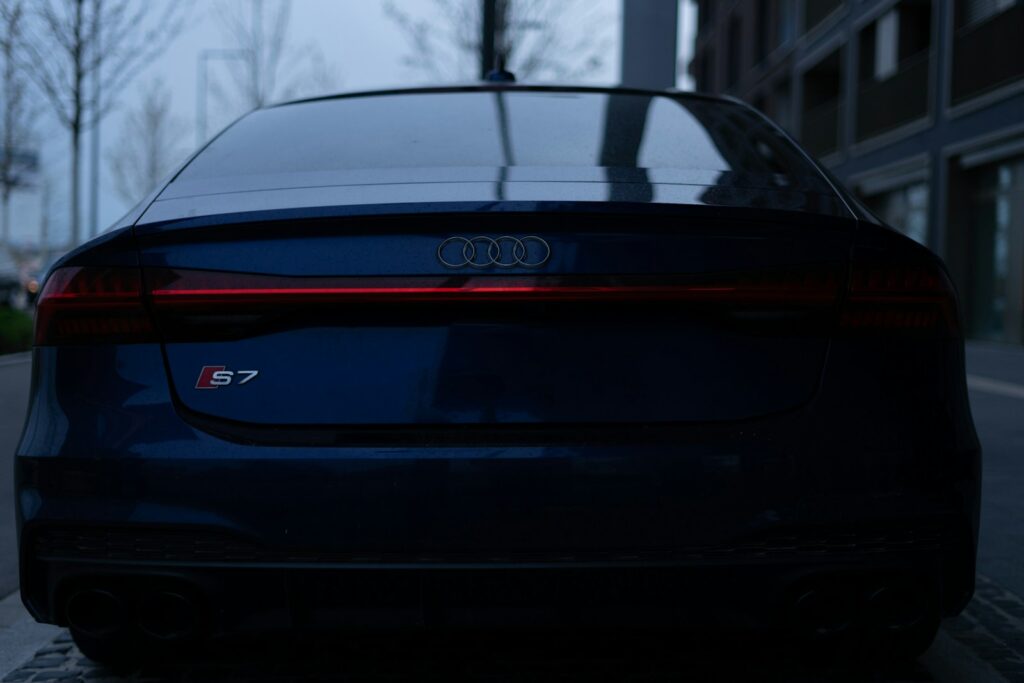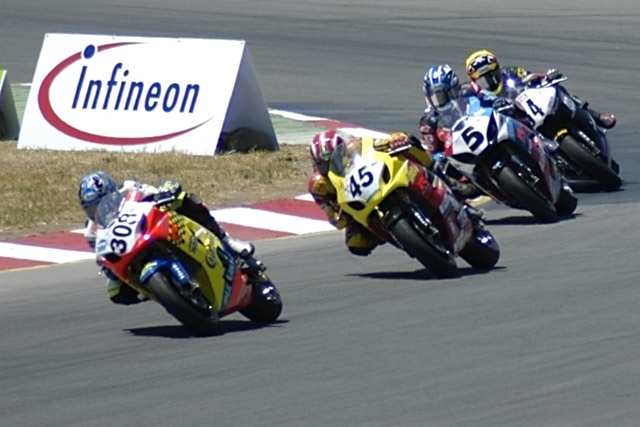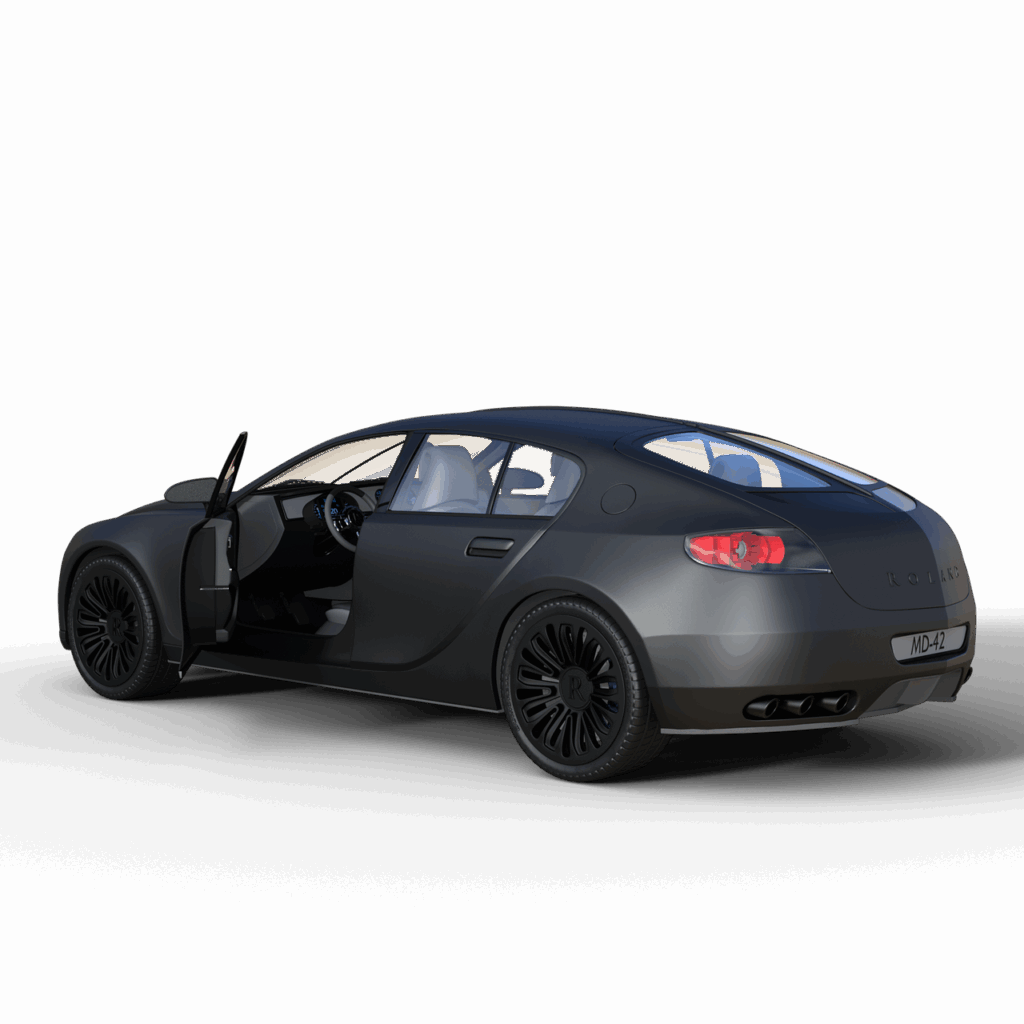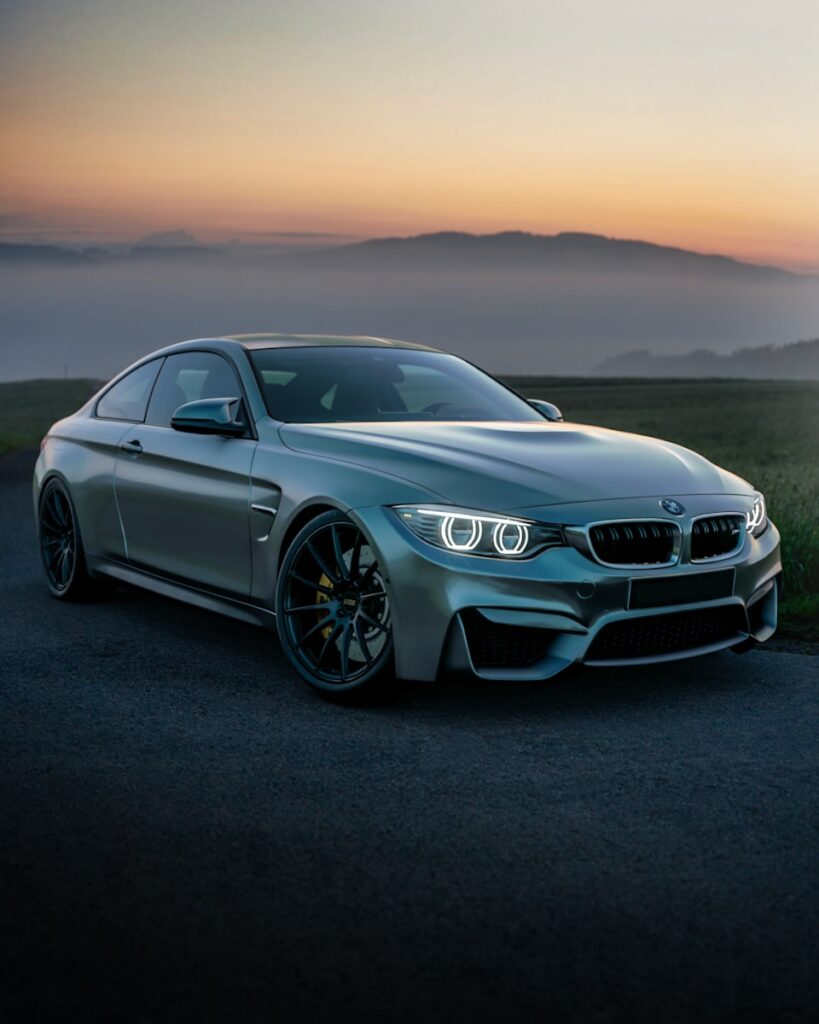
The automotive industry has faced few challenges as profound and reputation-damaging as the diesel emissions scandals that emerged in the mid-2010s. What began as an investigation into a single manufacturer quickly unveiled a systemic deception involving sophisticated software designed to cheat on federal emissions tests. This pervasive issue, often referred to as ‘Dieselgate,’ has left a lasting scar on consumer trust and led to multi-billion dollar penalties, recalls, and ongoing legal battles for several major automakers. At its core, the scandal exposed a deliberate bypass of environmental regulations.
Central to this controversy is the concept of a ‘defeat device.’ As defined by the Environmental Protection Agency (EPA), a defeat device is “Any device that bypasses, defeats, or renders inoperative a required element of the vehicle’s emission control system.” In the context of these diesel vehicles, this typically involved computer software engineered to detect when a vehicle was undergoing official emissions testing. During these tests, the software would activate full emissions controls, ensuring the vehicle met regulatory standards. However, under normal driving conditions, these controls would be significantly reduced or even turned off, allowing vehicles to emit pollutants, primarily oxides of nitrogen (NOx), at levels far exceeding legal limits.
This in-depth exploration will shed light on the specific models embroiled in these emissions controversies. We will meticulously examine the vehicles affected, detailing the extent of their non-compliance and the significant repercussions for both the environment and the unsuspecting consumers who purchased them. Our investigation aims to provide a clear, factual overview of the cars at the center of these scandals, drawing directly from the information provided by regulatory bodies and legal proceedings, ensuring consumers are fully informed about the ‘dark side of diesel.’

1. **Volkswagen Jetta (2.0L)**The Volkswagen Jetta, specifically models produced between 2009 and 2015, stands as one of the most prominent vehicles affected by the “Dieselgate” emissions scandal. Marketed heavily under Volkswagen’s “Clean Diesel” campaign, these 2.0-liter diesel sedans were presented to consumers as environmentally responsible and fuel-efficient choices. The promise was a balance of performance and sustainability, appealing to a broad segment of eco-conscious buyers in the United States and beyond. However, this image was built on a foundation of deceptive software.
These Jetta models were equipped with the notorious EA189 2.0-liter diesel engine, which housed a defeat device. This sophisticated software was designed to recognize when the vehicle was undergoing official emissions testing procedures. During these laboratory tests, the Jetta’s emission control systems would engage fully, allowing the car to comply with strict EPA standards. Yet, once the vehicle transitioned to real-world driving conditions, the software would alter the engine’s performance, significantly reducing the effectiveness of these controls.
The consequence of this manipulation was severe: the Jetta Clean Diesel models were found to emit nitrogen oxides (NOx) at levels up to 40 times higher than the legally permissible standards during normal operation. NOx is a serious health concern and a significant contributor to air pollution. This widespread non-compliance meant that these vehicles, despite passing official tests, were polluting the atmosphere far more than advertised and far more than regulations allowed, effectively failing to earn the necessary Certificate of Conformity for sale in the U.S.
For Jetta owners, the revelation of the defeat device led to substantial uncertainty and inconvenience. Volkswagen was compelled to issue recalls and offer various remedies, which included software updates, buybacks, and financial compensation. While these programs aimed to rectify the situation, many owners reported experiencing reduced performance and decreased fuel efficiency after the software modifications, leading to widespread dissatisfaction. The scandal not only damaged Volkswagen’s reputation but also triggered a broad loss of trust in diesel technology.
It is crucial for owners of Jetta models from the 2009 to 2015 model years to verify if their vehicle was affected. Volkswagen established online tools and processes, often requiring a Vehicle Identification Number (VIN) check, to confirm a vehicle’s status. Staying informed about any ongoing remedies or legal developments is essential for affected owners to understand their rights and address the lingering environmental and financial implications of this deception.
Car Model Information: 2019 Volkswagen Jetta 1.4T S
Name: Volkswagen Jetta
Production: 1979–present
Class: Compact car
Sp: uk
Categories: 1980s cars, 1990s cars, 2000s cars, 2010s cars, All-wheel-drive vehicles
Summary: The Volkswagen Jetta () is a compact car/small family car manufactured and marketed by Volkswagen since 1979. Positioned to fill a sedan niche slightly above the firm’s Golf hatchback, it has been marketed over seven generations, variously as the Atlantic, Vento, Bora, City Jetta, Jetta City, GLI, Jetta, Clasico, and Sagitar (in China).
The Jetta has been offered in two- and four-door saloon / sedan and sometimes as five-door wagon / estate versions. Since the original version in 1980, the car has grown in size and power with each generation. By mid-2011, almost 10 million Jettas have been produced and sold all over the world. As of April 2014, Volkswagen marketed over 14 million, becoming its top selling model.
Get more information about: Volkswagen Jetta
Buying a high-performing used car >>>
Brand: Volkswagen Model: Jetta
Price: $15,991 Mileage: 40,748 mi.
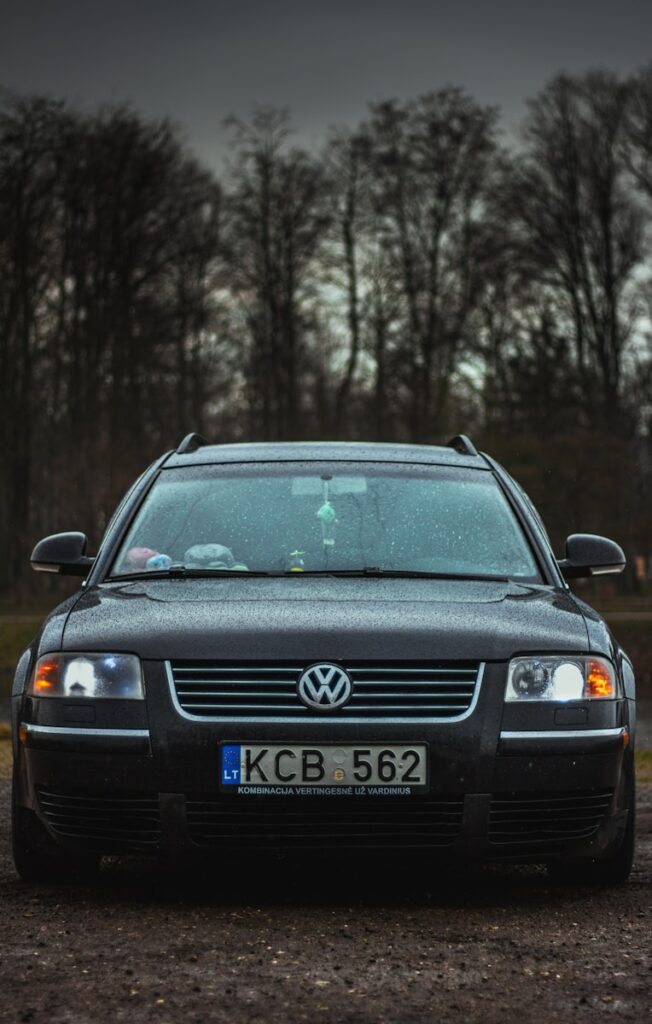
2. **Volkswagen Jetta Sportwagen (2.0L)**The Volkswagen Jetta Sportwagen, particularly model years 2009 through 2014, also fell victim to the widespread emissions cheating scandal. As a variant of the popular Jetta line, the Sportwagen, equipped with the same 2.0-liter diesel engine, was similarly marketed as an environmentally conscious and practical family vehicle. Its inclusion in the “Clean Diesel” branding meant consumers were led to believe they were purchasing a vehicle that balanced utility with ecological responsibility, a promise that proved to be false due to the integrated defeat device.
Like its sedan counterpart, the Jetta Sportwagen’s 2.0-liter diesel engine was embedded with software designed to circumvent emissions testing protocols. This sophisticated programming allowed the vehicle to perform within regulatory limits only when it detected the specific parameters of a laboratory test environment. Outside of these controlled conditions, during everyday driving, the emission control systems were deliberately scaled back to prioritize other factors like engine performance and fuel economy, at the expense of air quality.
The real-world consequence for the Jetta Sportwagen was a substantial increase in NOx emissions, far exceeding the legally mandated standards. The context indicates that 2.0-liter diesel cars involved in the scandal could emit nitrogen oxides at levels “up to 40 times more pollution than emissions standards allow” during normal operation. This significant discrepancy highlighted a clear violation of the Clean Air Act and underscored the deceptive practices employed by the manufacturer.
For owners of the Jetta Sportwagen, the scandal brought a wave of frustration and practical challenges. The vehicles, once lauded for their perceived eco-friendliness, were now known to be major polluters. Volkswagen’s response involved recalls and the provision of software updates intended to bring the vehicles into compliance. However, these “fixes” were often met with complaints from owners about noticeable declines in vehicle performance and fuel efficiency, diminishing the very attributes that made these diesel models attractive in the first place.
Owners of the 2009-2014 Jetta Sportwagen diesel models are strongly advised to check their vehicle’s status using official Volkswagen resources. Ensuring that any necessary software modifications or other remedies are applied is crucial, not only for environmental compliance but also to potentially address lingering concerns about vehicle value and performance. The experience of Jetta Sportwagen owners serves as a cautionary tale regarding the importance of corporate transparency in environmental claims.
Car Model Information: 2024 Ford Mustang GT Premium
Name: Volkswagen Jetta (A5)
Aka: Volkswagen Bora (Mexico and Colombia),Volkswagen GLI,Volkswagen Sagitar (China),Volkswagen Vento (Argentina, Chile, Paraguay and Uruguay)
Production: August 2005–2011,2006–2011 (China)
ModelYears: 2006–2010 (up to 2011 in China)
Assembly: ubl
Class: Compact car
BodyStyle: sedan (automobile)
Layout: Front-engine, front-wheel-drive
Platform: Volkswagen Group A platform#A5
Engine: ubl
Transmission: Manual transmission
Wheelbase: 2580 mm
Abbr: on
Length: 4554 mm
Width: 1781 mm
Height: 1460 mm
Related: Volkswagen Golf Mk5,Audi A3
Sp: uk
Predecessor: Volkswagen Bora
Successor: Volkswagen Jetta (A6)
Manufacturer: Volkswagen
Categories: 2010s cars, All articles with dead external links, All articles with specifically marked weasel-worded phrases, Articles with dead external links from August 2025, Articles with permanently dead external links
Summary: The Volkswagen Jetta (A5 or Mk5, codename 1K) is a compact car, the fifth generation of the Volkswagen Jetta and the successor to the Volkswagen Bora which was manufactured by Volkswagen between 2005 and 2010, and up to 2011 in China. It is a three-box sedan derivative of the Golf Mk5. It was marketed as the Volkswagen Bora in Mexico and Colombia, Volkswagen Vento in Argentina, Chile and Uruguay, and Volkswagen Sagitar in China.
Get more information about: Volkswagen Jetta (A5)
Buying a high-performing used car >>>
Brand: Volkswagen Model: Jetta Sportwagen
Price: $48,997 Mileage: 24,328 mi.

3. **Volkswagen Beetle (2.0L)**The iconic Volkswagen Beetle, in its TDI diesel models from 2013 to 2015, found itself unfortunately implicated in the pervasive “Dieselgate” scandal. This modern iteration of a beloved classic, featuring the 2.0-liter diesel engine, was presented as an eco-friendly and stylish option. The branding of these Beetles as “Clean Diesel” aimed to merge the vehicle’s distinctive design with a commitment to environmental performance, a marketing strategy that was severely undermined by the revelations of emissions cheating.
At the core of the Beetle TDI’s involvement was the installation of defeat device software within its 2.0-liter diesel engine. This software was meticulously programmed to identify when the vehicle was undergoing official emissions testing, temporarily activating full emission control systems to meet regulatory thresholds. However, once the vehicle was operated in everyday driving scenarios, these crucial emission controls were significantly reduced or deactivated, allowing for substantially higher pollutant emissions.
Consequently, the Beetle TDI models were found to emit nitrogen oxides (NOx) at levels far greater than those permitted by environmental regulations. These elevated emissions, reaching up to 40 times the standard under real-world conditions according to EPA allegations regarding 2.0-liter diesel cars, demonstrated a clear breach of federal clean air standards. This disparity meant that these Beetles, despite their “Clean Diesel” label, were contributing far more to air pollution than consumers were led to believe.
For owners of the affected 2013-2015 Beetle TDI models, the scandal brought considerable frustration and financial implications. Volkswagen offered various remedies, including software updates and, in some instances, buyback options or financial compensation. However, many owners reported adverse effects following the software updates, such as reduced fuel efficiency and altered driving performance. Furthermore, the negative publicity surrounding the scandal contributed to a significant depreciation in the resale value of these vehicles.
It is imperative for owners of the implicated Beetle TDI models to confirm their vehicle’s status via official Volkswagen channels, typically using their Vehicle Identification Number (VIN). Taking proactive steps to address the emissions issue, whether through approved modifications or participation in settlement programs, is vital. The Beetle TDI’s entanglement in the scandal serves as a stark reminder of the critical importance of manufacturer accountability and transparent communication regarding environmental compliance.
Car Model Information: 1969 Volkswagen Beetle (Pre-1980) Base
Sp: uk
Name: Volkswagen Type 1,”Beetle”
Caption: 1965–1966 Volkswagen Käfer
Manufacturer: Volkswagen
Alt: A front-three quarters view of a pale-yellow Volkswagen Käfer. It features 165/80R15 tires, which shod 15×4. 5″ silver, circular wheels. The Käfer features a beetle-like body, and its window is open. The picture is taken with much greenery in the background, and the photo was edited to give it a more warmer tone.
Aka: List of names for the Volkswagen Type 1
Assembly: #Markets and assembly
Designer: Ferdinand Porsche
Class: Small family car
BodyStyle: Sedan (automobile),convertible
Production: 1938–2003,21,529,464 produced
Successor: Volkswagen Golf Mk1,Volkswagen Gol#First generation (Typ30, 1980),Volkswagen New Beetle
Layout: Rear-engine, rear-wheel-drive layout
Engine: Petrol,Volkswagen air-cooled engine,1192 cc H4,1285 cc H4,1493 cc H4,1584 cc H4
Transmission: manual transmission,Saxomat,Autostick
Wheelbase: convert
Length: convert
Width: convert
Height: 1500 mm
Abbr: on
Weight: convert
Categories: 1940s cars, 1950s cars, 1960s cars, 1970s cars, 1980s cars
Summary: The Volkswagen Beetle, officially the Volkswagen Type 1, is a small family car produced by the German company Volkswagen from 1938 to 2003. A global cultural icon known for its bug-like design, the Beetle is widely regarded as one of the most influential cars of the 20th century. Its production period of 65 years is the longest for any single generation of automobile, and its total production of 21.5 million units makes it the most produced car of a single platform in history and the second-highest of all nameplates manufactured in the 20th century.
The Beetle was conceived in the early 1930s. The leader of Nazi Germany, Adolf Hitler, decided there was a need for a people’s car—an inexpensive, simple, mass-produced car—to serve Germany’s new road network, the Reichsautobahn. The German engineer Ferdinand Porsche and his design team began developing and designing the car in the early 1930s, but the fundamental design concept can be attributed to Béla Barényi in 1925, predating Porsche’s claims by almost ten years. The result was the Volkswagen Type 1 and the introduction of the Volkswagen brand. Volkswagen initially slated production for the late 1930s, but the outbreak of war in 1939 meant that production was delayed until the war had ended. The car was originally called the Volkswagen Type 1 and marketed simply as the Volkswagen. It was not until 1968 that it was officially named the “Beetle”.
Volkswagen implemented designations for the Beetle in the 1960s, including 1200, 1300, 1500, 1600, 1302, and 1303. Volkswagen introduced a series of large luxury models throughout the 1960s and 1970s—comprising the Type 3, Type 4 and K70—to supplement the Beetle, but none of these models achieved the level of success that it did. In 1972, it became the best-selling car of all time, a position it retained for nearly three decades. Rapidly changing consumer preferences toward front-wheel drive compact hatchbacks in Europe prompted Volkswagen’s gradual shift away from rear-wheel drive, starting with the Golf in 1974. In the late 1970s and ’80s, Japanese automakers dominated some markets around the world, which contributed to the Beetle’s declining popularity.
The Beetle remains one of the best-selling cars of all time and is the first to sell over 20 million units. Over its lifespan, its design remained consistent, yet Volkswagen implemented over 78,000 incremental updates. These modifications were often subtle, involving minor alterations to its exterior, interior, colours, and lighting. Some more noteworthy changes included the introduction of new engines, models and systems, such as improved technology or comfort. The Beetle maintains a substantial cultural influence and is regarded as one of the most iconic vehicles in automotive history; its success largely influenced the way automobiles are designed and marketed, and propelled Volkswagen’s introduction of a Golf-based series of vehicles.
Get more information about: Volkswagen Beetle
Buying a high-performing used car >>>
Brand: Volkswagen Model: Beetle
Price: $33,950 Mileage: 43,823 mi.

4. **Volkswagen Beetle Convertible (2.0L)**The Volkswagen Beetle Convertible, specifically diesel models from 2013 to 2015, was also identified as being equipped with a “defeat device” during the infamous emissions scandal. Sharing the same 2.0-liter diesel engine as its hardtop counterpart, this model too was marketed under the “Clean Diesel” banner, promising a blend of open-air driving enjoyment with supposed environmental responsibility. The revelation that these vehicles were deliberately designed to cheat on emissions tests profoundly impacted their image and the trust placed in the brand.
Just like other 2.0-liter diesel vehicles from Volkswagen, the Beetle Convertible contained sophisticated software that could discern when the car was undergoing official emissions scrutiny. During these testing periods, the software would ensure that the vehicle’s emission control systems operated at their full capacity, thereby meeting federal standards. However, in regular driving conditions, this intelligent programming would dial back these controls, leading to a significant increase in harmful emissions.
The practical effect of this deceptive programming was that the 2013-2015 Beetle Convertible diesel models emitted nitrogen oxides (NOx) at levels substantially higher than what was legally permitted. These elevated NOx levels, which for 2.0-liter diesel cars could be up to 40 times the standard in real-world scenarios, posed a serious environmental and public health risk. The disparity between advertised performance and actual emissions constituted a clear violation of the Clean Air Act.
Owners of the affected Beetle Convertible models faced a range of challenges. Beyond the ethical implications of driving a highly polluting vehicle, they contended with the practicalities of recalls and proposed “fixes.” While Volkswagen offered software updates and financial compensation, some owners reported dissatisfaction with the post-update vehicle performance, citing concerns about diminished power or fuel economy. Moreover, the value of these vehicles on the used car market saw a considerable decline following the widespread news of the scandal.
To ensure compliance and explore potential remedies, owners of the 2013-2015 Beetle Convertible diesel should utilize Volkswagen’s official VIN lookup tools or consult with authorized dealerships. Addressing these issues is not only a matter of legal compliance but also an opportunity for owners to seek resolution for the misrepresentation they experienced. The Beetle Convertible’s inclusion highlights the broad scope of the “Dieselgate” scandal, affecting diverse segments of Volkswagen’s product line.
Car Model Information: 2024 Ford Mustang GT Premium
Manufacturer: Volkswagen de México
Caption: 2013 Volkswagen Beetle (Germany)
Name: Volkswagen Beetle (A5)
Production: July 2011 – July 2019
Class: Compact car
Layout: Front-engine, front-wheel-drive
Predecessor: Volkswagen New Beetle
Successor: Volkswagen Golf Mk8
Assembly: Puebla
Platform: Volkswagen Group A platform#A5 (PQ35)
Engine: ubl
Transmission: manual transmission
Wheelbase: 2537 mm
Abbr: on
Length: 4278 mm
Width: 1808 mm
Height: 1486 mm
Related: Volkswagen Golf Mk6
BodyStyle: hatchback
Designer: Walter de Silva,Marc Lichte
Aka: Volkswagen Coccinelle (France),Volkswagen Maggiolino (Italy),Volkswagen Fusca (Brazil)
ModelYears: 2012–2019
Categories: 2010s cars, All articles with unsourced statements, Articles with short description, Articles with unsourced statements from April 2016, Articles with unsourced statements from May 2024
Summary: The Volkswagen Beetle, also sold as the Volkswagen Käfer, Volkswagen Coccinelle, Volkswagen Maggiolino, and Volkswagen Fusca in some countries, is a compact car marketed by Volkswagen introduced in 2011 for the 2012 model year, as the successor to the Volkswagen New Beetle launched in 1997. It features a lower profile while retaining an overall shape homaging the original Volkswagen Type 1 Beetle. One of Volkswagen’s goals with the model was to give it a more aggressive appearance while giving it some stylistic aspects reminiscent of the Type 1. This was an attempt to distance the new model from the New Beetle, produced from 1997 to 2011, which never approached the success of the original Beetle.
The second generation “new” Beetle shares the “A5” (PQ35) platform with the Jetta (A6) and was built alongside the Jetta, Golf Variant at Volkswagen’s plant in Puebla, Mexico. It is longer than the previous New Beetle at 4,278 mm (168.4 in) and also has a lower profile, 12 mm (0.5 in) lower than its predecessor, and 88 mm (3.5 in) wider. The trunk is now 310 L (11 cu ft), up from 209 L (7.4 cu ft). A convertible version followed the hatchback for the 2013 model year, first shown at the Los Angeles Auto Show in November 2012 when it also went on sale.
Head of Technical Development for VW, Frank Welsch, indicated at the 2018 Geneva Motor Show that this would be the Beetle’s final generation. On 13 September 2018, Volkswagen announced that the Beetle production would end in July 2019. The final third generation Beetle (a denim blue coupe) finished production on 9 July 2019, and was presented on the assembly line the next day. The model was officially retired at a ceremony in Puebla City later that day.
Get more information about: Volkswagen Beetle (A5)
Buying a high-performing used car >>>
Brand: Volkswagen Model: Beetle Convertible
Price: $48,997 Mileage: 24,328 mi.
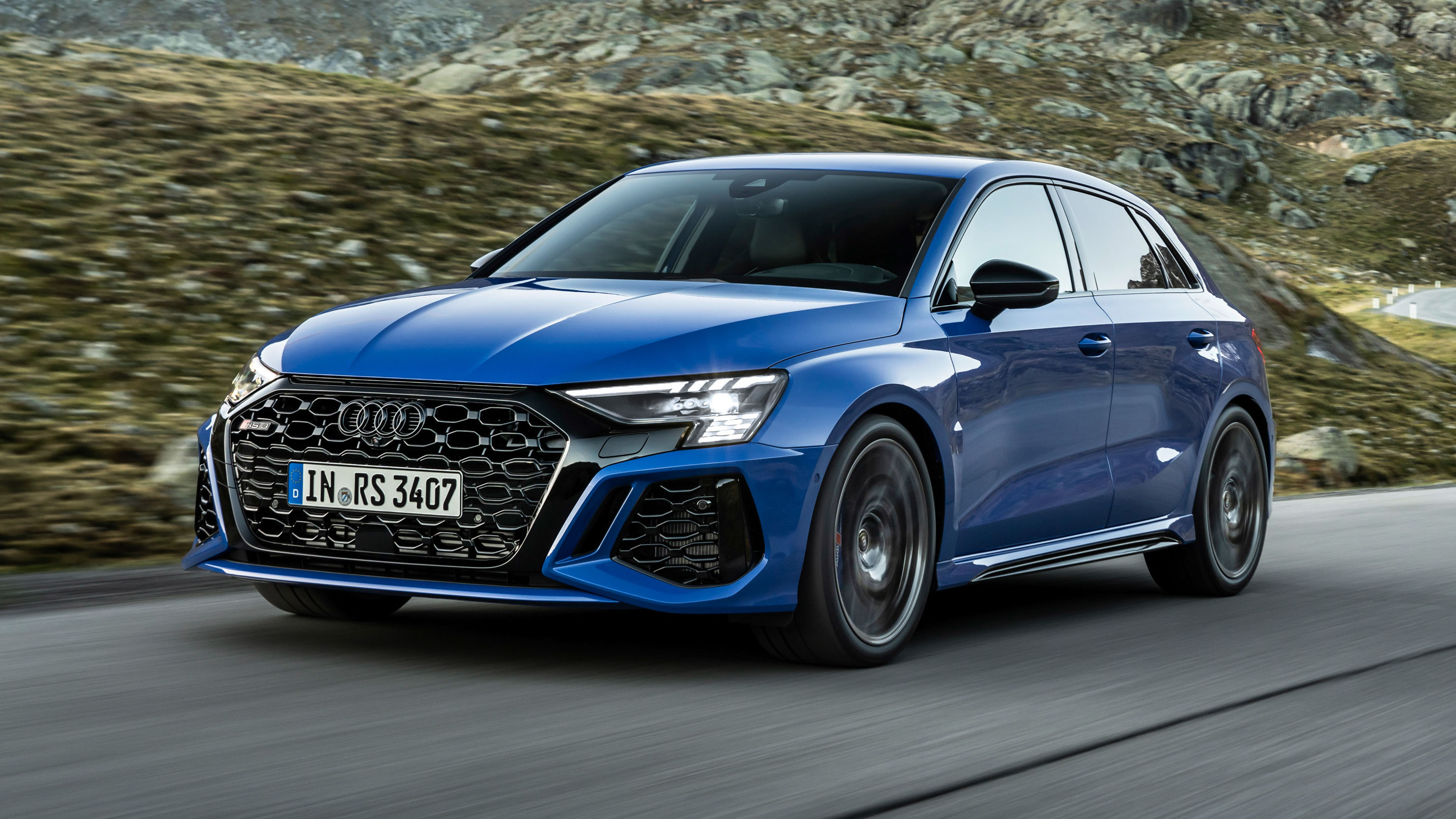
5. **Audi A3 Diesel (2.0L)**The Audi A3 Diesel, particularly models from 2010 to 2015, was a significant casualty of the Volkswagen emissions scandal, often referred to as “Dieselgate.” As a premium offering within the Volkswagen Group, the Audi A3 diesel variants, equipped with the EA189 2.0-liter engine, were marketed for their blend of luxury, performance, and impressive fuel efficiency. This appeal, however, was predicated on the false premise of clean diesel technology, which was ultimately compromised by the use of a defeat device.
The core of the issue for the Audi A3 Diesel lay in the sophisticated software embedded within its 2.0-liter turbocharged diesel engine. This software was meticulously programmed to detect the specific conditions of an emissions testing cycle. During such tests, the engine’s control systems would activate fully to ensure compliance with environmental regulations. Yet, in typical everyday driving, these controls would be deliberately reduced, prioritizing performance and fuel economy over environmental protection.
This deliberate manipulation resulted in the Audi A3 Diesel emitting nitrogen oxides (NOx) at levels significantly higher than the legal limits during real-world operation. Regulatory investigations confirmed that these vehicles, like other 2.0-liter models from the VW Group, could emit pollutants “up to 40 times more pollution than emissions standards allow.” This stark discrepancy exposed a blatant violation of environmental laws and severely undermined the brand’s reputation for engineering integrity and environmental claims.
Owners of the affected Audi A3 Diesel models faced substantial impacts, both environmental and financial. Audi, as a subsidiary of the VW Group, was compelled to initiate recalls and offer software updates. In the United States, affected owners were often eligible for compensation, including buyback programs or cash settlements, as part of broader legal resolutions. However, some owners expressed dissatisfaction with the post-update performance, noting potential reductions in power or increased fuel consumption, which further eroded trust in diesel technology.
For those still driving an affected Audi A3 Diesel from the 2010 to 2015 model years, checking the vehicle identification number (VIN) through official Audi or VW Group resources is essential. Staying informed about recall campaigns, emissions modifications, and available compensation programs is crucial to addressing the lingering effects of this scandal. The Audi A3 Diesel’s involvement highlights how deep the emissions fraud ran, impacting even luxury segments of the automotive market.
Car Model Information: 2024 Ford Mustang GT Premium
Name: Audi A3
Caption: Audi A3 Saloon (4th generation)
Manufacturer: Audi
Production: 1996–present
Class: Small family car
BodyStyle: hatchback
Layout: Front-engine, front-wheel-drive layout
Sp: uk
Categories: 1990s cars, 2000s cars, 2010s cars, 2020s cars, All-wheel-drive vehicles
Summary: The Audi A3 is a small family car (C-segment) manufactured and marketed by the German automaker Audi AG since September 1996.
The first two generations of the Audi A3 were based on the Volkswagen Group A platform, while the third and fourth generations use the Volkswagen Group MQB platform.
Get more information about: Audi A3
Buying a high-performing used car >>>
Brand: Audi Model: A3 Diesel
Price: $48,997 Mileage: 24,328 mi.
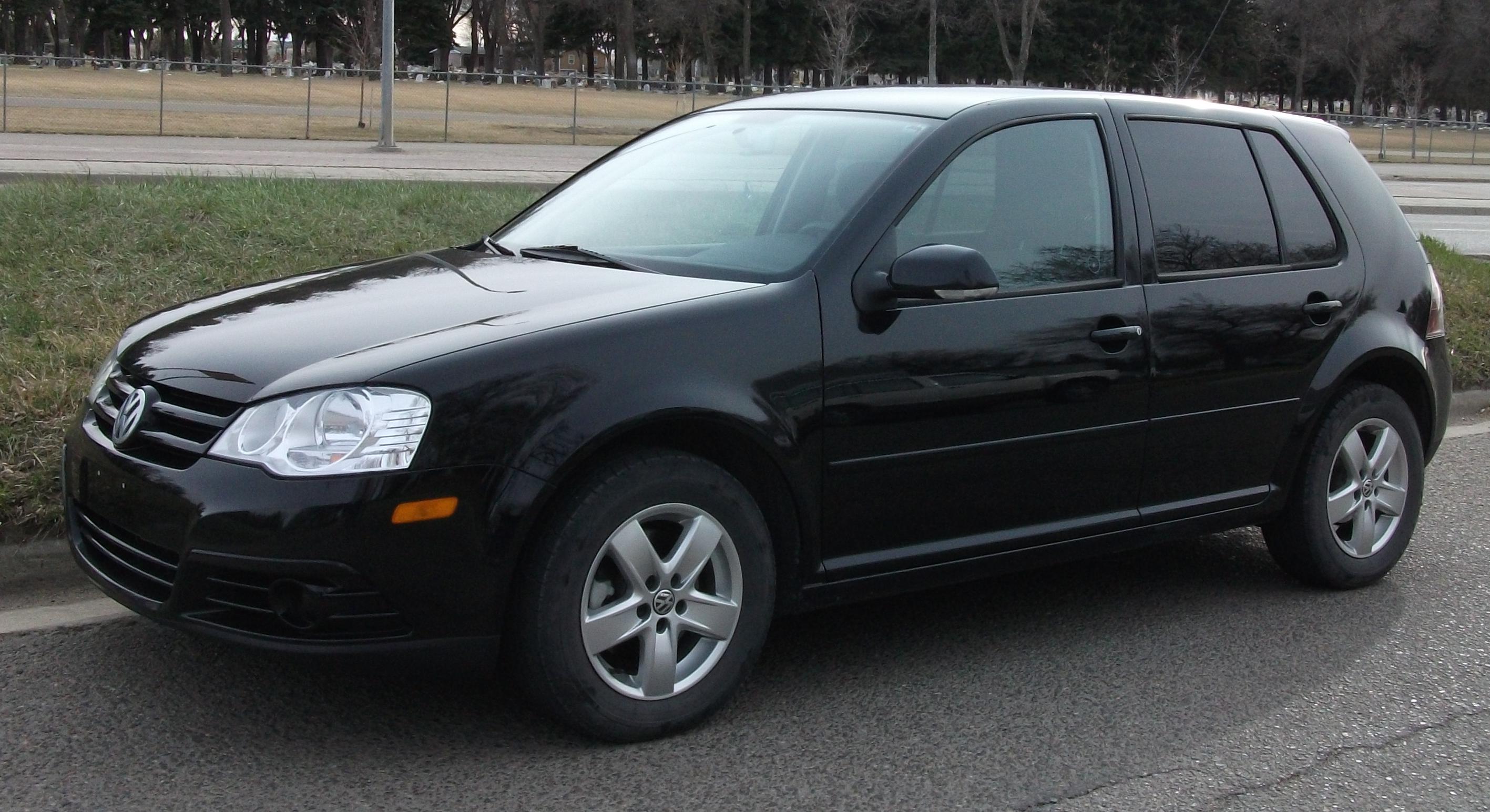
6. **Volkswagen Golf (2.0L)**The Volkswagen Golf TDI, encompassing models produced from 2010 to 2015, stands out as one of the most widely recognized vehicles affected by the “Dieselgate” scandal. This compact car, particularly the 2.0-liter diesel variants, was a cornerstone of Volkswagen’s “Clean Diesel” marketing. It was heavily promoted as an ideal solution for drivers seeking high fuel efficiency alongside low emissions, positioning it as an environmentally friendly option that offered both performance and economy.
However, the truth behind these claims was fundamentally compromised by the integration of a defeat device within the Golf TDI’s 2.0-liter diesel engine, specifically the EA189 variant. This sophisticated software was engineered to recognize when the vehicle was undergoing formal emissions testing. During these laboratory evaluations, the engine’s emission control systems would operate at their optimal level, allowing the Golf to pass regulatory inspections with flying colors. Yet, this compliance was merely a facade.
In real-world driving scenarios, the defeat device would reduce or deactivate the effectiveness of these crucial emission control systems. As a result, the Volkswagen Golf TDI was found to emit nitrogen oxides (NOx) at levels significantly higher than those permitted by regulatory standards, with some reports indicating emissions “up to 40 times higher than allowed by U.S. Environmental Protection Agency (EPA) regulations.” This immense disparity not only violated environmental laws but also fundamentally misled consumers who believed they were purchasing an eco-conscious vehicle.
For owners of the affected 2010-2015 VW Golf TDI models, the scandal brought a multitude of challenges. Volkswagen initiated widespread recalls and offered various remedies, including vehicle buybacks, necessary repairs, or software modifications. However, the subsequent software updates often led to complaints regarding diminished performance and reduced fuel efficiency, leaving many owners dissatisfied and facing uncertainty about the long-term value of their vehicles. The scandal contributed to a plummeting resale market for affected diesel cars.
It remains essential for owners of these specific Golf TDI models to utilize Volkswagen’s official channels, such as VIN lookup tools, to ascertain if their vehicle is subject to ongoing recalls or requires modifications. The VW Golf TDI’s central role in the emissions scandal continues to serve as a potent symbol of the broader issues surrounding corporate accountability, emissions compliance, and consumer trust within the global automotive industry.
Car Model Information: 2019 Volkswagen e-Golf SE
Name: Volkswagen Golf
Caption: Volkswagen Golf Mk8
Manufacturer: Volkswagen
Production: 1974–present
Class: Compact car
Predecessor: Volkswagen Beetle
Successor: Volkswagen ID.3
Alt: grey car (hatchback)
Categories: 1980s cars, 1990s cars, 2000s cars, 2010s cars, 2020s cars
Summary: The Volkswagen Golf () is a compact car/small family car (C-segment) produced by the German automotive manufacturer Volkswagen since 1974, marketed worldwide across eight generations, in various body configurations and under various nameplates – including as the Volkswagen Rabbit in the United States and Canada (Mk1 and Mk5), and as the Volkswagen Caribe in Mexico (Mk1).
The original Golf Mk1 was a front-engined, front-wheel drive replacement for the air-cooled, rear-engined, rear-wheel drive Volkswagen Beetle. Historically, the Golf is Volkswagen’s best-selling model and is among the world’s top three best-selling models, with more than 35 million units sold as of 2019.
Initially, most Golfs were hatchbacks, with the three-door version being somewhat more popular than the five-door. Other variants include an estate (Variant, from 1993), convertible (Cabriolet or Cabrio, from 1979), and a Golf-based saloon called the Jetta, Vento (from 1992), or Bora (from 1999). The Golf covers economy to high-performance market segments.
The Golf has won awards, including the World Car of the Year in 2009, with the Mk6 and in 2013 with the Mk7. Along with the Renault Clio and the Vauxhall Astra, the Golf is one of only three cars to have won European Car of the Year twice, in 1992 and 2013. The Golf has made the annual Car and Driver 10Best list multiple times. The Mk7 won the Motor Trend Car of the Year award in 2015, and the Mk1 GTI also won the award in 1985. The Mk4 won for the best-selling car in Europe in 2001.
Get more information about: Volkswagen Golf
Buying a high-performing used car >>>
Brand: Volkswagen Model: Golf
Price: $14,995 Mileage: 52,755 mi.
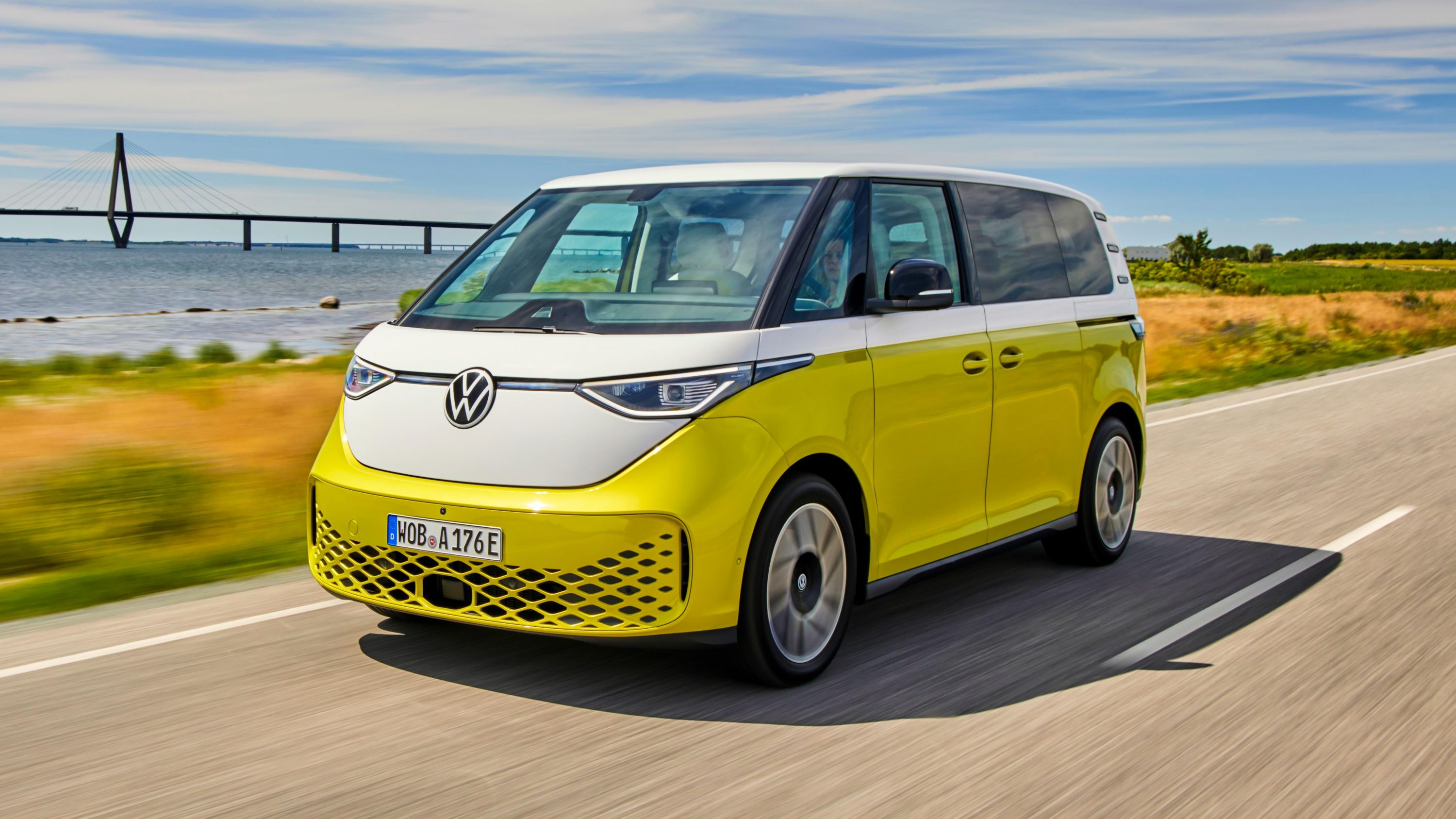
7. **Volkswagen Golf Sportwagen (2.0L)**The Volkswagen Golf Sportwagen, specifically the 2015 model year, was also among the 2.0-liter diesel vehicles impacted by the extensive Volkswagen emissions scandal. Sharing the same fundamental 2.0-liter diesel engine and underlying technology as its Golf siblings, this model, too, was equipped with the infamous defeat device. Its introduction into the market was overshadowed by the unfolding revelations of Volkswagen’s deceptive emissions practices, which had profound implications for its environmental claims.
Like other vehicles within the 2.0-liter affected fleet, the Golf Sportwagen’s diesel engine contained software designed to detect the precise conditions of emissions testing. During these controlled assessments, the vehicle’s emission control systems would engage fully, enabling it to meet the stringent regulatory requirements. However, in stark contrast, when the vehicle operated under normal driving conditions, these emission controls were intentionally reduced in their effectiveness.
This deliberate calibration resulted in the Golf Sportwagen emitting nitrogen oxides (NOx) at levels significantly above the legal standards, contributing substantially more pollution to the atmosphere than was permissible. The EPA’s allegations regarding 2.0-liter diesel cars indicated that these vehicles could emit NOx at levels “up to 40 times more pollution than emissions standards allow” during real-world operation, highlighting a severe breach of environmental regulations under the Clean Air Act.
Owners of the 2015 Volkswagen Golf Sportwagen diesel model faced similar issues to other affected Volkswagen Group customers. The vehicles were subject to recalls and required software updates designed to bring them into compliance. These “fixes” aimed to address the emissions discrepancies, but like many other affected models, there were concerns among owners about potential changes to vehicle performance or fuel economy after the modifications were implemented. The scandal necessitated regulatory bodies worldwide to scrutinize diesel vehicles more closely.
For owners of the affected 2015 Golf Sportwagen, it is vital to check their vehicle’s VIN through official Volkswagen resources to confirm its status and understand any available remedies. These could include participation in settlement programs, software updates, or other forms of compensation. The Golf Sportwagen’s inclusion underscores the broad and systemic nature of the emissions fraud, impacting various models across Volkswagen’s diverse vehicle lineup and prompting a reassessment of diesel technology’s future in the automotive market.
Having delved into the initial wave of the Volkswagen emissions scandal that primarily affected the early 2.0-liter diesel models, our investigation now expands to uncover the broader reach of this deception. We will examine additional Volkswagen variants, shift our focus to the larger and more powerful 3.0-liter diesel engines implicated across Volkswagen, Porsche, and Audi, and conclude with an overview of a distinct emissions-related lawsuit involving the Chevrolet Cruze diesel. This comprehensive view illuminates the persistent legal challenges and the extensive impact these scandals have had on the automotive landscape and consumer confidence.
Car Model Information: 2024 Ford Mustang GT Premium
Name: Volkswagen Golf Mk6
Manufacturer: Volkswagen
ModelCode: 5K
Aka: Volkswagen Jetta
Production: 2008–2013,2009–2013 (wagon),2011–2016 (cabriolet)
ModelYears: 2010–2014
Assembly: ubl
Designer: Walter de Silva
Class: Compact car
BodyStyle: hatchback
Layout: Front-engine, front-wheel-drive,Front-engine, all-wheel-drive
Platform: Volkswagen Group A platform#A5
Related: ubl
Engine: ubl
Transmission: manual transmission
Wheelbase: 2578 mm
Abbr: on
Length: 4199 mm
Width: 1779 mm
Height: 1479 mm
Weight: convert
Predecessor: Volkswagen Golf Mk5,Volkswagen Eos
Successor: Volkswagen Golf Mk7,Volkswagen T-Roc
Sp: uk
Categories: 2010s cars, All-wheel-drive vehicles, All Wikipedia articles in need of updating, All articles with dead external links, All articles with unsourced statements
Summary: The Volkswagen Golf Mk6 (code named Typ 5K) is a compact car and the sixth generation of the Volkswagen Golf. The Volkswagen Golf Mk6 is the successor to the Volkswagen Golf Mk5 and It was unveiled at the Paris Motor Show in October 2008 for the 2009 model year.
The new model was largely based on its predecessor, the Golf Mk5, and was effectively a re-engineered facelift of the previous model. In January 2013, it was superseded by the Volkswagen Golf Mk7, which was built on the newly assembled MQB platform.
Get more information about: Volkswagen Golf Mk6
Buying a high-performing used car >>>
Brand: Volkswagen Model: Golf Sportwagen
Price: $48,997 Mileage: 24,328 mi.

8. **Volkswagen Passat (2.0L)**The Volkswagen Passat, specifically the 2.0-liter TDI diesel models produced from 2012 to 2015, represents another significant component of the “Dieselgate” scandal’s 2.0-liter fleet. Unlike the models discussed previously, the Passat’s involvement often receives less attention, yet its deceptive operation mirrored that of its smaller siblings. These vehicles were marketed for their spaciousness, comfortable ride, and crucially, their perceived fuel efficiency and lower emissions, a promise that proved to be fundamentally flawed.
At the heart of the Passat’s non-compliance was the identical defeat device software found in other EA189 2.0-liter diesel engines. This software was engineered to detect the specific conditions of official emissions tests, activating full emission controls only during these controlled environments. In regular driving conditions, the software would strategically reduce the effectiveness of these pollution controls, allowing the vehicle to prioritize performance and fuel economy over environmental integrity.
The consequence for the Passat TDI was severe, as it emitted nitrogen oxides (NOx) at levels significantly above legal limits during everyday operation. EPA allegations against 2.0-liter diesel cars indicated emissions “up to 40 times more pollution than emissions standards allow.” This considerable disparity meant that Passat owners, like others, unknowingly contributed far more to air pollution than regulations permitted or advertising suggested, undermining the vehicle’s environmental claims.
Owners of the affected 2012-2015 Passat diesel models faced the same challenging remedies as other Volkswagen Group customers. These included recalls and mandatory software updates aimed at bringing the vehicles into compliance. However, many owners expressed concerns about a noticeable reduction in fuel efficiency and altered driving characteristics after these modifications, impacting the very attributes that made the diesel Passat an attractive option for many. Furthermore, on September 7, 2017, the EPA and California Air Resources Board disapproved Volkswagen’s Proposed Emissions Modification for model year 2012-2014 manual transmission diesel Passat vehicles, adding further complexity for some owners.
For Passat owners, particularly those with the 2012-2015 2.0L TDI, it remains critical to verify their vehicle’s status through Volkswagen’s official channels, often using their VIN. Participation in available settlement programs or seeking approved emissions modifications is essential to ensure compliance and address any lingering performance or value concerns. The Passat’s inclusion reinforces the widespread nature of the 2.0-liter diesel deception across Volkswagen’s core lineup.
Car Model Information: 2022 Volkswagen Passat 2.0T SE
Name: Volkswagen Passat
Caption: Passat B9
Manufacturer: Volkswagen
Aka: Volkswagen Dasher,Volkswagen Quantum,Volkswagen Santana,Volkswagen Corsar,Volkswagen Magotan (China),Volkswagen Carat
Production: 1973–present
Class: Mid-size car
Layout: Front-engine, front-wheel-drive layout
Predecessor: Volkswagen Type 4,Volkswagen Type 3,Volkswagen K70
Successor: Volkswagen ID.7
Sp: uk
Categories: 1970s cars, 1980s cars, 1990s cars, 2000s cars, 2010s cars
Summary: The Volkswagen Passat is a nameplate of large family cars (D-segment) manufactured and marketed by the German automobile manufacturer Volkswagen since 1973 and also marketed variously as the Dasher, Santana, Quantum, Magotan, Corsar and Carat — in saloon, estate, and hatchback body styles.
A “four-door coupé” variant of the Passat with a lower roof was released in the North American market in 2008 as the Passat CC, which was then renamed to Volkswagen CC. The CC was succeeded by the Arteon in 2017.
In January 2011, Volkswagen introduced a separate Passat model line, internally designated “Volkswagen New Midsize Sedan” or NMS, that was manufactured in the US at the Chattanooga assembly plant and in China at Nanjing by SAIC-Volkswagen. Developed to increase Volkswagen sales in North America, the Passat NMS is larger and costs less to produce, and is sold in the North America, South Korea, China, and Middle East. The separate B8 Passat model entered production, based on the MQB platform.
In 2019, the Passat NMS program was split into two as the North American one continued being produced on an older platform while the Chinese Passat moved on to the MQB platform, which resulted in Volkswagen marketing three models under the Passat nameplate globally at that time. The North American Passat was discontinued after the 2022 model year.
Volkswagen ended the production of the saloon Passat for the European market in 2022. The B9 Passat, released in 2023, is only available in an estate body style. The Passat continues to be available as a saloon in China.
The “Passat” is one of several Volkswagen models named after a wind: “Passat” is the usual German word for “Trade winds”.
Get more information about: Volkswagen Passat
Buying a high-performing used car >>>
Brand: Volkswagen Model: Passat
Price: $16,981 Mileage: 76,970 mi.
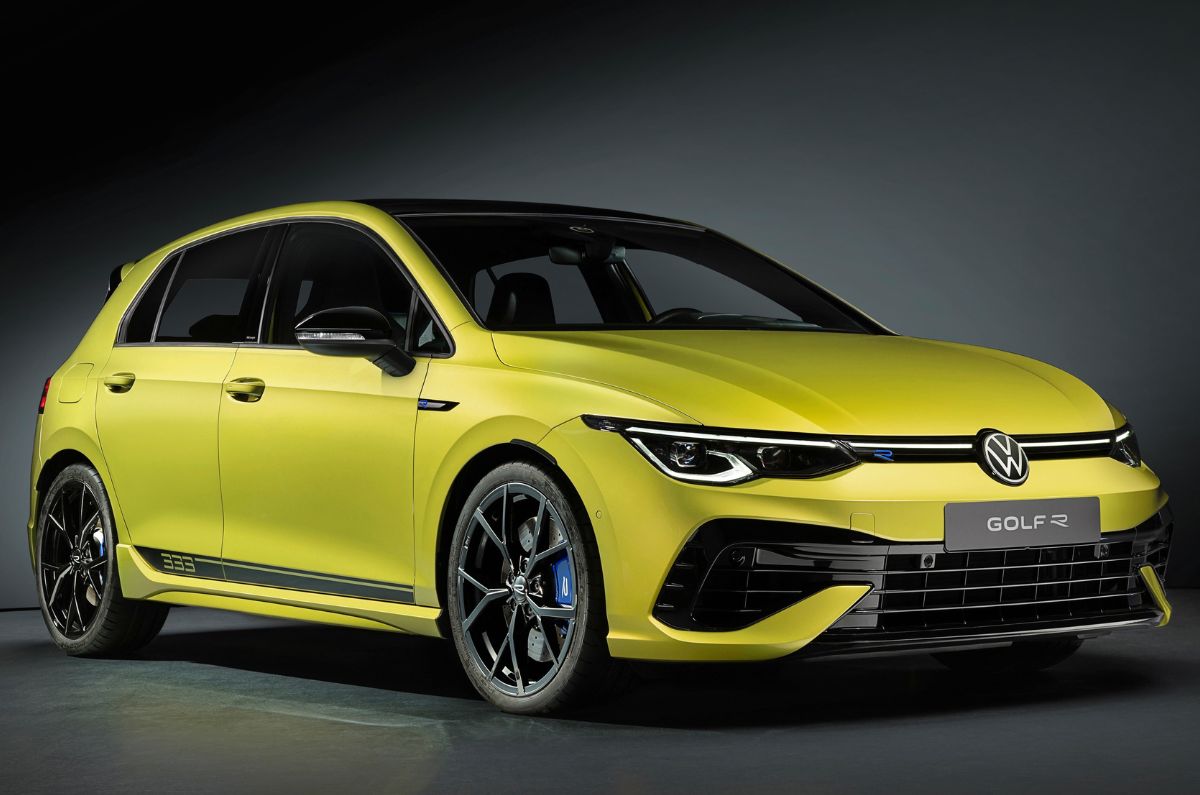
9. **Volkswagen Touareg (3.0L)**The Volkswagen Touareg, specifically 3.0-liter diesel models spanning from 2009 to 2016, marked a significant expansion of the “Dieselgate” scandal beyond the initial 2.0-liter engines. These larger, more luxurious SUVs were promoted for their robust performance, towing capability, and remarkable fuel economy, attributes often associated with advanced diesel powertrains. The revelation that these premium vehicles also contained defeat devices extended the scandal’s reach into a higher-end segment of the automotive market.
Unlike the initial 2.0-liter allegations, the discovery of defeat devices in the 3.0-liter diesel engines came later, with the EPA issuing a Notice of Violation on November 2, 2015, for certain model year 2014-2016 vehicles. Subsequently, Volkswagen officials admitted that the defeat device had been present in all U.S. 3.0-liter diesel models since 2009. The software allowed these engines to pass emissions tests by enabling full controls only during the test cycle, reducing their effectiveness during normal driving.
The environmental impact of these 3.0-liter diesel models was substantial, though slightly different from their 2.0-liter counterparts. The 3.0-liter Touareg, along with other affected vehicles in this segment, was found to emit nitrogen oxides (NOx) at levels up to nine times higher than the legally permissible standards during real-world driving. While less than the “up to 40 times” for the 2.0-liter engines, this still constituted a severe violation of clean air regulations and contributed significantly to air pollution.
For owners of the Volkswagen Touareg 3.0L TDI, the scandal brought about considerable uncertainty and the need for remedies. Volkswagen entered into a second settlement on December 20, 2016, specifically addressing the 3.0-liter diesel engines. This led to recall campaigns, software updates, and in many cases, buyback options or substantial financial compensation for affected owners. However, similar to the 2.0-liter models, some owners reported concerns about post-fix performance, including changes to power delivery or fuel consumption.
It is imperative for Touareg 3.0L owners from the 2009-2016 model years to remain informed about their vehicle’s status. Official Volkswagen resources, including VIN lookup tools, can confirm eligibility for approved emissions modifications or other forms of compensation. The Touareg’s involvement underscored that the deception was not limited to entry-level diesel offerings but permeated across the VW Group’s more premium, larger-engine diesel vehicles as well.
Car Model Information: 2009 Volkswagen Touareg 2 V6 TDI
Name: Volkswagen Touareg
Manufacturer: Volkswagen
Production: August 2002 – present
ModelYears: 2003–present
Assembly: unbulleted list
Class: Mid-size,luxury car,crossover SUV
BodyStyle: SUV
Layout: Front-engine, four-wheel-drive
Categories: 2010s cars, 2020s cars, All-wheel-drive vehicles, All articles containing potentially dated statements, All articles needing additional references
Summary: The Volkswagen Touareg (German pronunciation: [ˈtuːaʁɛk]) is a mid-size luxury crossover SUV produced by Volkswagen since 2002. The vehicle is named after the nomadic Tuareg people, inhabitants of the Saharan interior in North Africa. The Touareg was originally developed with the Porsche Cayenne and Audi Q7 and as of October 2020, the Touareg was developed with the Audi Q8, the Bentley Bentayga and the Lamborghini Urus, which shares their MLB Evo platform and chassis. The first generation (2002–2010) offered five, six, eight, ten, and twelve-cylinder engine choices.
Get more information about: Volkswagen Touareg
Buying a high-performing used car >>>
Brand: Volkswagen Model: Touareg
Price: $6,999 Mileage: 183,087 mi.

10. **Porsche Cayenne (3.0L)**The inclusion of the Porsche Cayenne 3.0-liter diesel models, specifically from 2013 to 2016, in the emissions scandal was a particularly jarring revelation for the automotive world. As a marquee luxury SUV brand, Porsche’s association with “Dieselgate” extended the scope of the deception to high-performance vehicles, challenging the perception of engineering integrity across the Volkswagen Group. These models, highly prized for their blend of sportiness, utility, and fuel efficiency, were found to share the same underlying defeat device technology as their Volkswagen and Audi counterparts.
The issue stemmed from the 3.0-liter V6 diesel engine, supplied by Audi and utilized across several premium models within the VW Group, including the Cayenne. This engine contained sophisticated software designed to recognize when the vehicle was undergoing formal emissions testing. During these tests, the emission control systems would engage fully, allowing the Cayenne to meet regulatory standards. However, under normal driving conditions, these controls would be deliberately reduced, leading to significantly higher real-world emissions.
Consequently, the Porsche Cayenne 3.0L diesel was found to emit nitrogen oxides (NOx) at levels “up to nine times more pollution than emissions standards allow” during typical operation. This data, emerging from regulatory investigations, confirmed a serious breach of environmental laws and tarnished Porsche’s reputation for advanced engineering and adherence to environmental standards. The scandal highlighted the pervasive nature of the defeat device strategy across various brands and vehicle types within the conglomerate.
For owners of affected Porsche Cayenne diesel models, the scandal brought considerable disappointment and practical challenges. Porsche, as part of the VW Group, was compelled to participate in recall campaigns and offer remedies that included software updates, and for U.S. owners, often buyback programs or substantial financial settlements. The process for 3.0-liter diesel vehicles gained official approval for emissions fixes for SUVs on October 20, 2017, providing a pathway to compliance.
Owners of the 2013-2016 Porsche Cayenne 3.0L diesel models are strongly advised to utilize Porsche’s official resources to confirm their vehicle’s status. Ensuring that any necessary emissions modifications are applied is crucial, not only for environmental compliance but also to potentially mitigate any lingering concerns about vehicle value or performance. The Cayenne’s involvement served as a stark reminder that even luxury automotive brands were not immune to the widespread repercussions of “Dieselgate.”
Car Model Information: 2020 Porsche Cayenne Base
Name: Porsche Cayenne
Manufacturer: Porsche
Production: August 2002–present
ModelYears: 2003–present
Class: crossover SUV
Layout: Front-engine, four-wheel-drive
Categories: 2010s cars, 2020s cars, All-wheel-drive vehicles, All articles needing additional references, All articles with dead external links
Summary: The Porsche Cayenne is a series of automobiles manufactured by the German company Porsche since 2002. It is a luxury crossover SUV, and has been described as both a full-sized and a mid-sized vehicle. The first generation was known within Porsche as the Type 9PA (955/957) or E1. It was the first V8-engined vehicle built by Porsche since 1995, when the Porsche 928 was discontinued. It is also Porsche’s first off-road variant vehicle since its Super and Junior tractors of the 1950s, as well as the first production Porsche with four doors. Since 2014, the Cayenne has been sold alongside a smaller Porsche SUV, the Macan.
The second-generation Cayenne (Type 92A or E2) was unveiled at the 2010 Geneva Motor Show in March. The Cayenne shares its platform, body frame, doors, and electronics with the Volkswagen Touareg and Audi Q7. It received a facelift in 2014 with minor external changes, and introduced a new plug-in E-Hybrid version with its public launch at the Paris Motor Show. Since 2008, all engines have featured direct injection technology. The third generation (Type 9YA or E3) was unveiled in 2017 in the German city of Stuttgart.
Get more information about: Porsche Cayenne
Buying a high-performing used car >>>
Brand: Porsche Model: Cayenne
Price: $43,490 Mileage: 35,240 mi.

11. **Audi A6 Quattro (3.0L)**The Audi A6 Quattro, specifically its 3.0-liter TDI diesel variants from model years 2014 to 2016, was another premium vehicle caught in the extensive web of the Volkswagen emissions scandal. As a sophisticated executive sedan, the A6 Quattro TDI was celebrated for its luxurious appointments, powerful V6 diesel engine, and impressive long-distance cruising efficiency. These attributes were unfortunately overshadowed by the discovery of a defeat device, casting a shadow over Audi’s “Vorsprung durch Technik” (progress through technology) philosophy.
The core problem in the Audi A6 Quattro 3.0L TDI lay with the EA897 3.0-liter V6 diesel engine, which, like other 3.0L engines in the scandal, was equipped with software designed to manipulate emissions tests. This programming enabled the vehicle to detect test conditions and temporarily activate a full array of emission controls to meet regulatory standards. In real-world driving, however, these critical systems were scaled back, allowing for significantly higher emissions of harmful pollutants.
Consequently, the Audi A6 Quattro 3.0L diesel models were found to emit nitrogen oxides (NOx) at levels up to nine times higher than federal limits during normal operation. This factual discrepancy, supported by regulatory findings, underscored a clear violation of environmental statutes and a profound deception of consumers. The excess NOx contributed to air quality concerns, directly contradicting the perceived environmental benefits of modern diesel technology.
Owners of the affected 2014-2016 Audi A6 Quattro 3.0L TDI vehicles experienced the multifaceted impact of the scandal. Audi, under the Volkswagen Group, initiated recall campaigns and offered various remedies, including approved software updates and, in the U.S., eligibility for compensation packages or buybacks. While some owners accepted these resolutions, others reported dissatisfaction with potential changes to vehicle performance or fuel efficiency post-modification, a common complaint across affected models.
For current owners of the Audi A6 Quattro 3.0L diesel, checking their Vehicle Identification Number (VIN) through official Audi channels is highly recommended. Staying updated on approved emissions modifications, such as those for 3.0L passenger cars approved on December 18, 2017, is crucial for compliance and to ensure all available remedies are pursued. The A6 Quattro’s entanglement highlights that the emissions fraud reached deeply into Audi’s executive luxury offerings.
Car Model Information: 2024 Ford Mustang GT Premium
Name: Audi A6
Caption: 2025 Audi A6 Avant (C9)
Manufacturer: Audi AG
Production: 1994–present,2000–present (China)
Class: Executive car
BodyStyle: Sedan (car)
Layout: longitudinal engine,FF layout
Sp: uk
Predecessor: Audi 100
Categories: 2000s cars, 2010s cars, 2020s cars, All-wheel-drive vehicles, All Wikipedia articles written in British English
Summary: The Audi A6 is an executive car manufactured by the German company Audi since 1994. Now in its sixth generation, the successor to the Audi 100 is manufactured in Neckarsulm, Germany, and is available in saloon and estate configurations, the latter marketed by Audi as the Avant. Audi’s internal numbering treats the A6 as a continuation of the Audi 100 lineage, with the initial A6 designated as a member of the C4-series, followed by the C5, C6, C7, C8 and the C9. The related Audi A7 is essentially a Sportback (liftback) version of the C7-series and C8-series A6 but is marketed under its own separate identity and model designation.
All generations of the A6 have offered either front-wheel-drive or Torsen-based four-wheel-drive, marketed by Audi as their quattro system. The A6 has also been used as the basis for the company’s Allroad models since 1999.
Get more information about: Audi A6
Buying a high-performing used car >>>
Brand: Audi Model: A6 Quattro
Price: $48,997 Mileage: 24,328 mi.
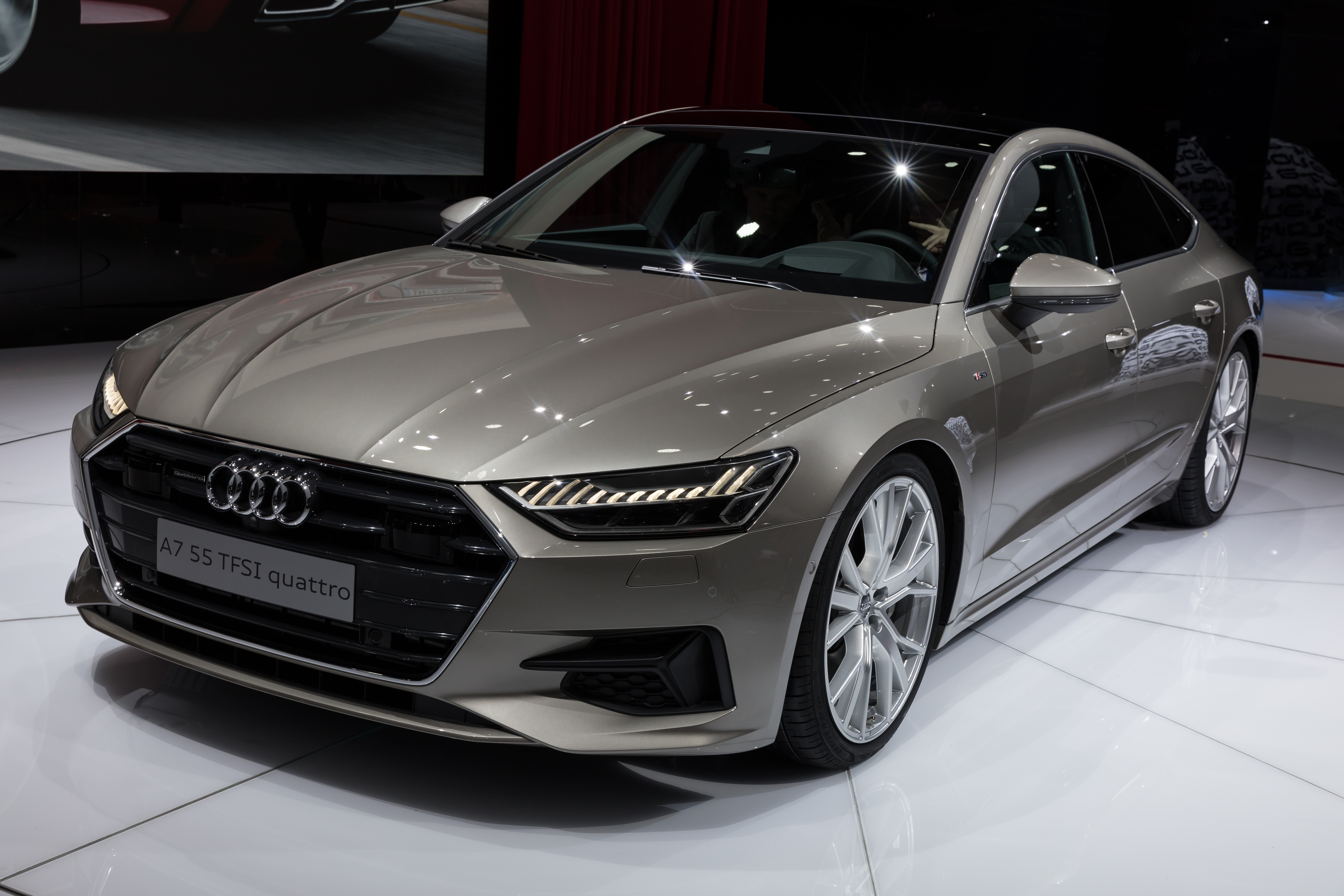
12. **Audi A7 Quattro (3.0L)**Another high-end Audi model implicated in the 3.0-liter diesel emissions scandal was the Audi A7 Quattro, specifically models from 2014 to 2016. The A7, renowned for its distinctive Sportback design, sophisticated interior, and dynamic driving experience, offered a 3.0-liter TDI engine variant that promised a powerful yet efficient luxury ride. However, this blend of performance and economy was achieved through the same deceptive defeat device software found in other Volkswagen Group 3.0L diesels.
The underlying issue for the Audi A7 Quattro 3.0L TDI centered on the programmed behavior of its engine control unit. This software was meticulously crafted to identify the precise conditions of an emissions testing cycle. When these conditions were met, the engine’s advanced emission control systems, including selective catalytic reduction (SCR), would operate at their most effective levels to ensure compliance with stringent regulations. Crucially, this robust performance was not maintained in everyday driving.
During regular road use, the defeat device would deliberately reduce the operational intensity of these emission control systems, prioritizing engine performance and fuel economy. As a direct result, the Audi A7 Quattro 3.0L diesel models were found to emit nitrogen oxides (NOx) at levels significantly above the legal thresholds, reaching “up to nine times more pollution than emissions standards allow” in real-world conditions. This represented a substantial and illegal contribution to air pollution.
Owners of the 2014-2016 Audi A7 Quattro diesel models faced the dual challenge of owning a vehicle that was both a luxury status symbol and an undeclared polluter. Audi, under pressure from regulatory bodies, implemented recall programs offering software updates and, in the U.S., compensation. While aimed at rectifying the emissions issue, these “fixes” sometimes led to owner dissatisfaction regarding perceived alterations in vehicle dynamics or efficiency, further eroding trust in the brand’s diesel technology.
For those driving an affected Audi A7 Quattro 3.0L TDI, verifying the vehicle’s status through Audi’s official channels is a necessary step. Engaging with approved emissions modifications or participating in available settlement programs is vital to ensure compliance and resolve any outstanding concerns. The A7’s involvement in the scandal underscored the widespread nature of the 3.0L diesel deception across Audi’s diverse and premium product portfolio.
Car Model Information: 2024 Ford Mustang GT Premium
Name: Audi A7
Caption: Audi A7 S Line
Manufacturer: Audi
Class: Executive car
Production: 2010–present
Layout: ubl
Platform: Volkswagen Group MLB platform
Predecessor: Audi 100 Coupé S
Categories: 2020s cars, All-wheel-drive vehicles, All Wikipedia articles in need of updating, Articles with short description, Audi vehicles
Summary: The Audi A7 is an executive five-door liftback produced by Audi since 2010. The coupé variant of the Audi A6 saloon/estate, the Audi A7 features a sloping roofline with a steeply raked rear window and integrated boot lid (forming the Sportback), and four frameless doors. A sport version called the S7 has been made since 2012, and a high-performance model called the RS7 has been in production since 2013. An extended-wheelbase three-box, four-door saloon derivative called the A7L has been produced in China since 2021.
Get more information about: Audi A7
Buying a high-performing used car >>>
Brand: Audi Model: A7 Quattro
Price: $48,997 Mileage: 24,328 mi.
13. **Audi Q5 (3.0L)**The Audi Q5, a popular luxury compact SUV, also featured prominently in the 3.0-liter diesel emissions scandal, with affected models spanning from 2014 to 2016. Marketed as a versatile and efficient premium SUV, the Q5 3.0L TDI appealed to consumers seeking a blend of performance, practicality, and perceived environmental responsibility. However, like its sedan counterparts, these Q5 models were outfitted with software designed to circumvent emissions testing.
The 3.0-liter V6 TDI engine in the Audi Q5 contained the same problematic defeat device technology found in other VW Group 3.0L models. This intelligent programming allowed the engine to detect when it was being subjected to official emissions tests, activating a more rigorous emissions control strategy. Once the vehicle returned to normal driving, the software would reduce the effectiveness of these controls, leading to a significant increase in harmful emissions.
The environmental consequence for the Audi Q5 3.0L diesel was an unacceptable increase in nitrogen oxides (NOx) emissions during real-world operation. Regulatory bodies confirmed that these vehicles emitted NOx at levels up to “nine times more pollution than emissions standards allow,” far exceeding legal limits. This deliberate non-compliance contributed significantly to urban air pollution and exposed consumers to a misleading “clean diesel” narrative.
For owners of the 2014-2016 Audi Q5 3.0L TDI, the scandal necessitated a series of actions, including participating in recalls and receiving mandatory software updates. While these measures aimed to bring the vehicles into regulatory compliance, concerns emerged among some owners regarding potential impacts on vehicle performance, such as power output or fuel economy. In the United States, eligible owners often received substantial compensation through legal settlements.
Owners of the affected Audi Q5 3.0L diesel models are encouraged to check their Vehicle Identification Number (VIN) through official Audi resources. Staying informed about the latest approved emissions modifications, including those for 3.0L SUVs approved on October 20, 2017, is crucial for addressing the environmental and practical implications of this widespread deception. The Q5’s role further cemented the depth of the scandal within Audi’s popular SUV lineup.
Car Model Information: 2023 Audi Q5 40 Premium
Name: Audi Q5
Manufacturer: Audi
Production: 2008–present
Class: Compact executive car,crossover SUV
Layout: Unbulleted list
BodyStyle: Unbulleted list
Categories: 2010s cars, 2020s cars, All-wheel-drive vehicles, All Wikipedia articles written in British English, All articles with bare URLs for citations
Summary: The Audi Q5 is a series of compact luxury crossover SUVs produced by the German luxury car manufacturer Audi from 2008. The original first-generation (Typ 8R) model was the third member of the B8 family to be released after the Audi A5 and fourth-generation A4, all being based on the Audi MLB platform. The second generation Q5 (Typ 80A) debuted in 2018 and shares the Audi MLB Evo platform with the corresponding B9 versions of the A4 and A5.
Get more information about: Audi Q5
Buying a high-performing used car >>>
Brand: Audi Model: Q5
Price: $29,498 Mileage: 34,315 mi.
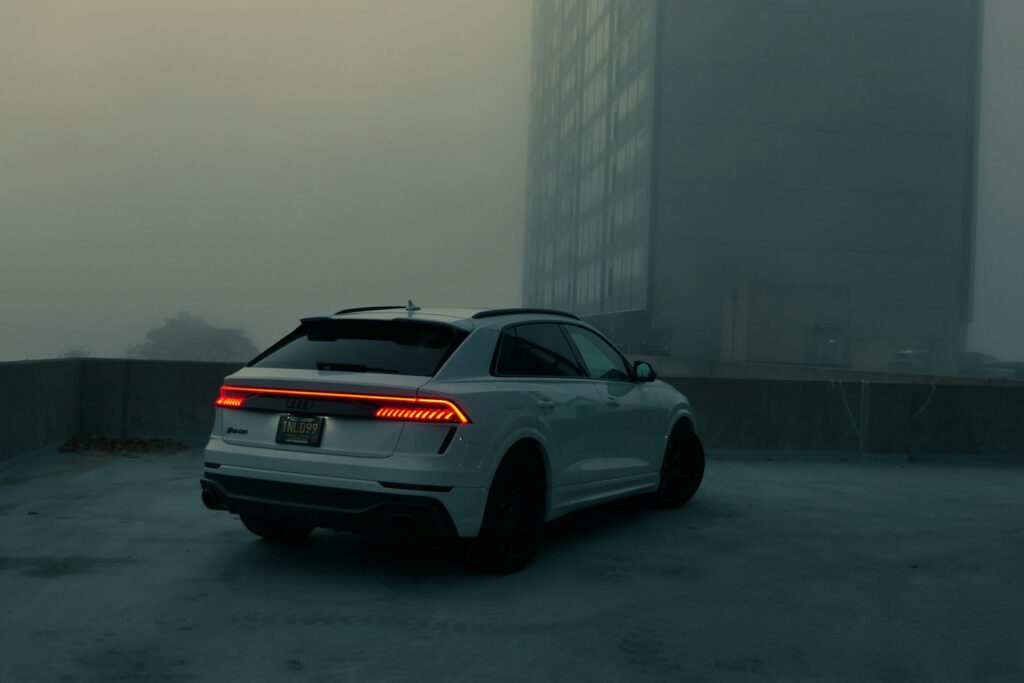
14. **Audi Q7 (3.0L)**The Audi Q7, a flagship luxury full-size SUV, was another substantial vehicle impacted by the Volkswagen Group’s 3.0-liter diesel emissions scandal, with models from 2009 to 2016 being affected. Revered for its commanding presence, sophisticated interior, and powerful 3.0L TDI engine, the Q7 was a key player in Audi’s premium SUV segment. Its inclusion in “Dieselgate” demonstrated the pervasive nature of the emissions fraud across the highest echelons of the conglomerate’s diesel offerings.
Central to the Q7’s non-compliance was the integration of the defeat device software within its 3.0-liter V6 diesel engine. This intricate programming was designed to sense when the vehicle was undergoing emissions testing, engaging the full suite of emissions control systems to meet regulatory thresholds. However, during normal operational conditions, this sophisticated software would reduce the efficacy of these controls, thereby allowing the engine to operate with diminished environmental safeguards.
As a result of this intentional manipulation, the Audi Q7 3.0L diesel models were found to emit nitrogen oxides (NOx) at levels significantly exceeding federal clean air standards during real-world driving. Reports confirmed these emissions were “up to nine times more pollution than emissions standards allow,” painting a stark picture of the environmental impact caused by these vehicles. This flagrant disregard for regulations had serious implications for air quality and public health.
For owners of the Audi Q7 3.0L TDI, the scandal led to mandatory recalls and a complex process of resolution. Following widespread allegations and legal action, Volkswagen, on behalf of Audi, entered into settlements that provided for approved emissions modifications, buybacks, or financial compensation for affected owners. Owners of 3.0L SUVs, including the Q7, saw emissions fixes approved on October 20, 2017, providing a pathway to address the non-compliance.
It is vital for Q7 3.0L diesel owners from the 2009-2016 model years to actively engage with official Audi resources to confirm their vehicle’s status and understand the available remedies. Seeking the approved emissions modification is essential to ensure regulatory compliance and to potentially resolve any lingering concerns about vehicle performance or long-term reliability. The Audi Q7’s role in the 3.0L diesel scandal solidified the understanding that the emissions deception was deeply embedded across the entire Volkswagen Group’s diesel product range.
Car Model Information: 2021 Audi Q7 55 Premium Plus
Name: Audi Q7
Manufacturer: Audi AG
Production: November 2005–present
ModelYears: 2006–present
Class: Full-size,luxury SUV
BodyStyle: SUV
Layout: Longitudinal engine,front-engine, four-wheel-drive
Sp: uk
Categories: 2010s cars, 2020s cars, All-wheel-drive vehicles, All Wikipedia articles written in British English, All articles with dead external links
Summary: The Audi Q7 is a crossover SUV made by the German manufacturer Audi, unveiled in September 2005 at the Frankfurt Motor Show. Production of this seven-seater SUV began in November 2005 at the Volkswagen Bratislava Plant in Bratislava, Slovakia.
The Q7 was the first SUV sold by Audi and went on sale in 2006. Later, Audi’s second SUV, the Q5, was unveiled as a 2009 model. Audi has since unveiled a third SUV model, the Q3, which went on sale in the third quarter of 2011, and a fourth SUV model, the Q2, which went on sale in November 2016. The Q7 shares a Volkswagen Group MLB platform and chassis with the Bentley Bentayga, Lamborghini Urus, Porsche Cayenne and the Volkswagen Touareg.
The Q7 is the second largest vehicle from Audi, being surpassed by the Q6 since 2022. While the Q7 has been the flagship SUV in Audi’s product portfolio, a top-of-the-line model with a lower roof, called the Audi Q8, was released in 2018.
It was one of the vehicles involved in the Volkswagen emissions scandal, with the company ordered to buy back some of the affected cars manufactured between 2009 and 2012. The Q7 is also subject to hundreds of NTSB complaints with many relating to potentially catastrophic engine failure issues, and a class-action lawsuit related to squealing brakes.
Get more information about: Audi Q7
Buying a high-performing used car >>>
Brand: Audi Model: Q7
Price: $29,991 Mileage: 52,765 mi.

15. **Chevrolet Cruze Diesel**Beyond the widespread Volkswagen Group scandals, the automotive landscape has seen other emissions-related legal challenges, notably involving the Chevrolet Cruze diesel. Nine years after an initial lawsuit was filed, this case, alleging the use of emissions defeat devices in 2014-2015 diesel models of the compact sedan, is still making its way through the courts. This separate legal battle underscores that emissions manipulation is not solely confined to one manufacturer.
The plaintiffs in this ongoing lawsuit claim that, similar to the Volkswagen models, these specific Cruze diesel variants were equipped with software capable of disabling or reducing emissions controls when the vehicle was not undergoing official emissions testing. They argue that this deliberate programming resulted in the cars emitting significantly higher levels of nitrogen oxides (NOx) than advertised by GM and, critically, higher than the EPA’s permissible standards. Such a scenario would mean these vehicles should not have received the necessary Certificate of Conformity for sale in the U.S.
Initially, many of the claims in the lawsuit were dismissed due to a perceived lack of evidence. Additionally, a judge highlighted that despite claims of potential financial loss due to “future attempted repairs,” none of the plaintiffs had actually sought to have their vehicles repaired in the five years following the case’s filing. These factors contributed to the protracted legal journey for the plaintiffs seeking redress.
However, the legal saga for the Chevrolet Cruze diesel owners is far from over. The U.S. Court of Appeals for the Sixth Circuit recently ruled that the plaintiffs deserve another opportunity to present their case to a lower district court. This decision allows for a re-evaluation of certain fraud claims, which the plaintiffs contend are not preempted by federal emissions regulations or the Clean Air Act, offering a renewed hope for those who feel wronged.
Car Model Information: 2024 Ford Mustang GT Premium
Name: Chevrolet Cruze
Caption: 2017 Chevrolet Cruze LT sedan
Manufacturer: General Motors
Aka: unbulleted list
Production: unbulleted list
ModelYears: 2011–2019 (North America),2026 (Middle East)
Class: Compact car
Layout: Front-engine, front-wheel drive
Predecessor: unbulleted list
Successor: unbulleted list
Categories: 2010s cars, 2020s cars, ANCAP small family cars, All articles containing potentially dated statements, All articles with dead external links
Summary: The Chevrolet Cruze is a compact car produced by General Motors from 2008 through 2023. It was designated as a globally developed, designed, and manufactured four-door compact sedan, complemented by a five-door hatchback body variant from 2011, and a station wagon in 2012. The Cruze replaced several compact models, including the Chevrolet Optra which was sold internationally under various names, the Chevrolet Cobalt sold exclusively in North America, and the Australasian-market Holden Astra.
The Cruze was released in 2008 for the South Korean market as the Daewoo Lacetti Premiere prior to the adoption of its international name in 2011, when the Daewoo brand was discontinued. In Australasia, the model was sold between 2009 and 2016 as the Holden Cruze. In 2016, the Cruze sedan was restyled and renamed for the Australasian market as the Holden Astra Sedan, as a sedan complement to the Holden Astra family.
Due to the market shift towards SUVs and decreasing sales, the Cruze has been gradually phased out. Production of the Cruze in South Korea ended in 2018 as part of restructuring of GM Korea, which in turn ceased supply of the Holden Astra Sedan to Australasia. In the United States and Mexico, production ended in 2019, while production in China ended in 2020. Production continued in Argentina until 2023. It was replaced by the Monza in China, which is known as the Cavalier in Mexico.
In 2025, the Cruze was revived as a rebadged Chevrolet Monza for the Middle East.
Previously, the nameplate has been used for a version of a subcompact hatchback car produced under a joint venture with Suzuki from 2001 to 2007, and was based on the Suzuki Ignis.
Get more information about: Chevrolet Cruze
Buying a high-performing used car >>>
Brand: Chevrolet Model: Cruze Diesel
Price: $48,997 Mileage: 24,328 mi.
Read more about: Regret in Every Lane: 12 Rides Drivers Admit They’d “Unbuy” in a Flash, Ranked by Real-World Woes
While the case has been pending for nearly a decade, the court has stipulated that no new litigation will be permitted. Instead, the suit is remanded solely to determine if the remaining claims are, in fact, preempted by existing laws. This ongoing legal battle serves as a stark reminder that the pursuit of justice in complex automotive cases can be a marathon, illustrating the enduring challenges consumers face when confronting alleged corporate misconduct in emissions compliance. The principle, “Dura Lex, Sed Lex,” or “the law may be tough, but it’s the law,” certainly resonates here, as owners continue their fight for accountability.

